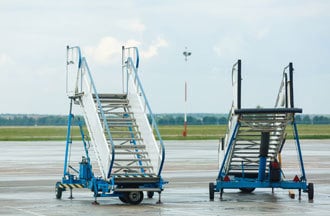
Geneva – The International Air Transport Association (IATA) revealed new research showing the impacts on the European aviation industry and on economies caused by the shutdown of air traffic due to the COVID-19 pandemic have worsened over recent weeks.
Airlines in Europe are set to lose $21.5 billion in 2020, with passenger demand declining by over half. This puts at risk between 6-7 million jobs supported by aviation in Europe alone. An accelerated recovery of air transport in Europe is vital if the worst of these impacts is to be avoided. This can be achieved through government action in two priority areas:
1. A coordinated restart of air travel, with the opening up borders (including elimination of quarantine) and operating rules based on the health guidance set down by the International Civil Aviation Organization (ICAO) and at European level by the European Aviation Safety Agency (EASA) and the European Centre for Disease Control (ECDC).
2. Continued financial and regulatory support, particularly direct financial aid, an extension of the waiver to the 80-20 slot rule, and relief from taxes and charges.
"Europe’s economies have been brought to their knees by COVID-19, and the aviation industry has been especially hard-hit. Recent optimism over the opening of the Schengen borders should not obscure the critical seriousness of the situation. Across Europe, more than six million jobs in the airline industry and those businesses supported by aviation are at risk. Thousands of jobs have already been lost due to the shutdown of air traffic. For our future prosperity it is imperative that the industry recovers as soon as possible,” said Rafael Schvartzman, IATA’s Regional Vice President for Europe.
The latest assessment from IATA Economics shows that the outlook at national level has worsened for major aviation markets in Europe since April. For example, the passenger numbers, airline revenue, jobs at risk and GDP impacts for the five biggest European markets have declined across every metric:
| Country | April Pax estimates | June pax estimates | April jobs at risk | june jobs at risk | april GDP | JUne GDP |
|---|---|---|---|---|---|---|
| UK | -140 million | -154 million | -661,200 | -732,500 | -$50.3bn | -$55.7bn |
| Spain | -114 million | -124.5 million | -901,300 | -983,100 | -$59.4bn | -$64.7bn |
| Germany | -103 million | -113.4 million | -483,600 | -534,000 | -$34bn | -$37.6bn |
| Italy | -83 million | -92 million | -310,400 | -345,300 | -$21.1bn | -$23.5bn |
| France | -80 million | -88.7 million | -392,500 | -434.700 | -$35.2bn | -$38.9bn |
Download this information for the full list of selected European countries (pdf)
1. Coordinated restart
It is essential that governments coordinate to restart air connectivity consistently and in line with international best practice. The guidance set out by ICAO is broadly consistent with measures recommended by EASA/ECDC and strikes the right balance between safeguarding public health while permitting viable air services. The measures, including more thorough and frequent cleaning, and the wearing of face masks, further reduce the already low risk of transmission on board. Other measures, such as airport screening where appropriate, discouraging symptomatic passengers from travelling, and safe destination protocols, can also reduce the role of aviation as a potential source of international re-infection, and render quarantine unnecessary.
"Quarantine measures are a huge impediment to a recovery in air traffic. Our latest passenger survey shows that 78% of people in France, 76% in Germany and 83% in the UK will not travel if a quarantine is in place. Therefore, governments looking to reopen their economies need an alternative, risk-based solution. The answer is a strategy that combines coordinated, internationally-consistent health measures for air travel with effective national plans for managing COVID-19,” said Schvartzman.
2. Continued financial and regulatory aid
Many European governments have recognized the strategic importance of their aviation industries and provided support. It is important to note, however, that much of the financial aid has been in the form of loans, which are adding to the debt burden for airlines and which will hinder their ability to invest in new services, cleaner aircraft, and expanded employment going forward.
"We are grateful to governments who have provided assistance so far to our industry. Those actions have saved thousands of jobs and are enabling airlines to keep connectivity going. But I’m afraid the worst may be yet to come. Airlines rely on the summer season to provide a financial cushion for the more challenging winter months. But we know that European airlines are set to lose $21 billion this year. There will be no summer cushion. Continued relief measures will be essential to minimize job losses and maintain transport links. We would urge European regulators to prioritize an extension to the waiver granted for the slot use rules, and to consider other forms of financial aid that will not add to the growing debt burden weighing airlines down,” said Schvartzman.
For more information, please contact:
Corporate Communications
Tel: +41 22 770 2967
Email: corpcomms@iata.org
Notes for editors:
- IATA (International Air Transport Association) represents some 290 airlines comprising 82% of global air traffic.
- You can follow us at https://twitter.com/iatafor announcements, policy positions, and other useful industry information.
- Please see a table listing the latest economic impact figures for selected European states (pdf). Please note that the sum of the passenger and revenue impacts in this table are not additive. They include the impacts from all carriers irrespective of airline registration region.
- For the April estimates please see the 23 April press release.

